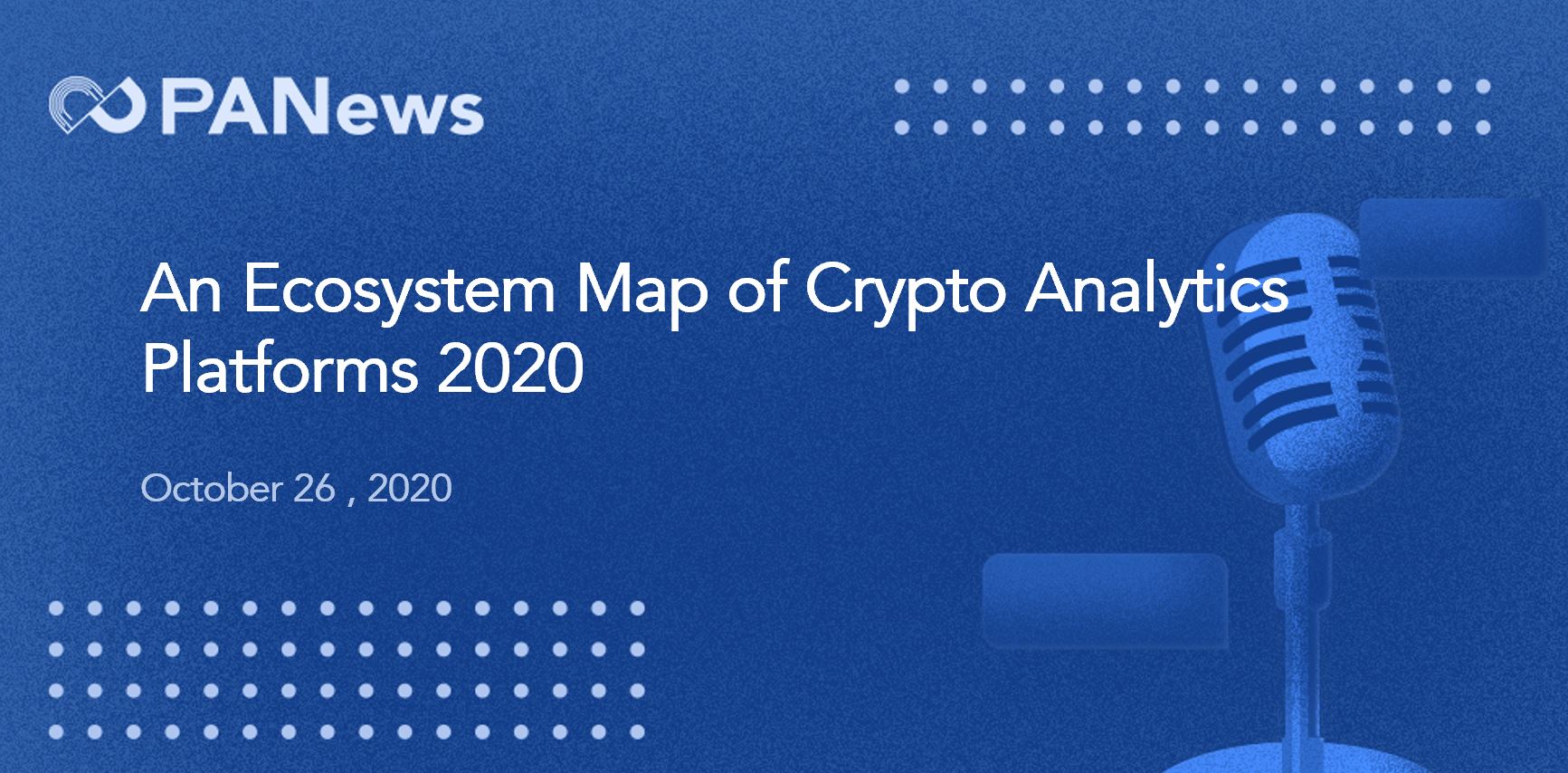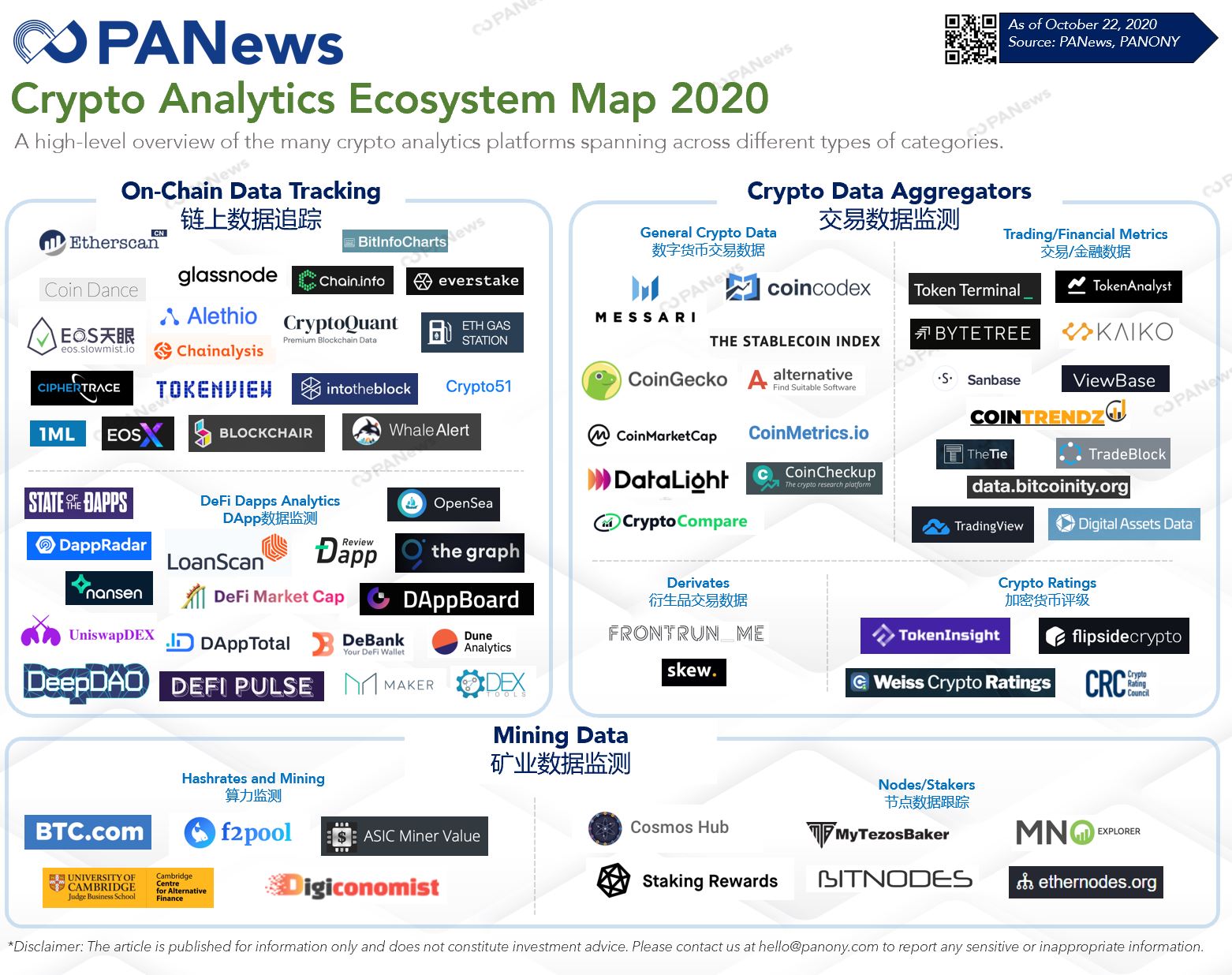
Blockchains
are full with data. The same can be said of crypto derivatives data which are
not stored on blockchains. And there a ton of blockchain protocols. The same
can be said of exchanges that offer derivatives of crypto. So on and so forth.
By now you get the point we are stressing here that crypto usage has increased
at the expense of having trusted, transparent data, which will continue to get
convoluted.
In a
conversation with PANews, Bobby Ong of CoinGecko has opined on this:
“I think crypto analytics is moving in the right direction but it will get more
complex. Just look at Ethereum 2.0 for example, how are we going to measure the
activities going on in multiple shards.”
The
number of platforms and teams providing actionable crypto data has multiplied
over the years with a myriad amount of options to choose from depending on what
type of data you are looking for. The field is wide and deep with no standout
market leader…yet. But PANews has put together a current ecosystem map of the
more popular crypto data analytics providers and the type of category they
would fall into. Be advised that this is not an exhaustive covering and some
providers may overlap with other categories. But it’s a good snapshot of what
we have in the offerings.

On-Chain
Data Tracking
The bulk of
these platforms are on-chain data analytics for Bitcoin and Ethereum.
Considering these two are the most popular blockchains currently, there are a
few that provide data for what’s going on in EOS and other blockchains that
would make up the top 10 in most rankings. Some of these adhere to financial
regulators for preventing money laundering activities such as CipherTrace and
Chainanalysis. A sub-category of DeFi Dapps Analytics providers was also
created to give way for the DeFi boom we saw this past year. a good chuck of
DeFi activity is on Ethereum, but they do deserve their own attention.
Crypto Data Aggregators
This category
in general can come off a bit too general so we broke it down into 4
sub-categories: General Crypto Data, Trading/Financial Metrics, Derivatives,
and Crypto Ratings. This delineation may be subjective but we tried to base
these on what stood out the most on these provider’s platforms.
General
Crypto Data
This
sub-category is quite self-explanatory. Providers such as CoinGecko, Messari,
and CoinMarketCap would fit well into this. These sites in this sub-category
would probably be the go-to sites for new comers in the space as they all give
great easy to understand introductions to tokens, projects, terminology, etc.
Trading/Financial
Metrics
The platforms
in this sub-category would consist of financial or trading data suitable for
crypto traders. Some of them may be more suitable for institutional investors
while some of them can fit well with retail traders. All depending on how much
you want to be for subscriptions of course.
Derivatives
This category,
although small, was appropriate for providers who can more data regarding
derivatives trading.
Crypto Ratings
Although this
category isn’t too data intensive, they do represent a necessary field of
combining qualitative and quantitative measures in ranking crypto/tokens. Each
one of these providers have their own proprietary methodologies in their
ranking systems, but they all do posses similarities in line with those of the
traditional rating agencies such as Fitch or Moody’s.
Mining Data
This category
was broken down into two: Hashrates (General Mining) and Nodes/Stakers. The
former is more applicable to bitcoin mining and asic mining in general. These sites
give data pertaining to mining pools, current total hashrates, ASICs, energy
consumption, etc. Although overlooked at times, mining is an essential part of
decentralizing certain blockchains. The analytics platforms in the latter
category provide information on nodes/stakers for protocols such as EOS,
Cosmos, Tezos, etc. Although Bitnodes and Ethernodes give node information on
Bitcoin and Ethereum, respectively.
In conclusion,
the field of crypto analytics is getting bigger, competitive, and innovative
all for the good of the community. In an exclusive video podcast
with Messari’s Ryan Watkins, he sees it playing out, “for the foreseeable
future, crypto analytic platforms will probably remain fragmented with
specialized data providers, in the longer term, it is definitely a space that
is ripe for consolidation”.
Special thanks to PANews’ data analyst, Carol, for the help in compiling this ecosystem map a year ago in this piece. She highlights the big financing some of these analytic firms received and also on if crypto data is more geared as a B2B or B2C market.











